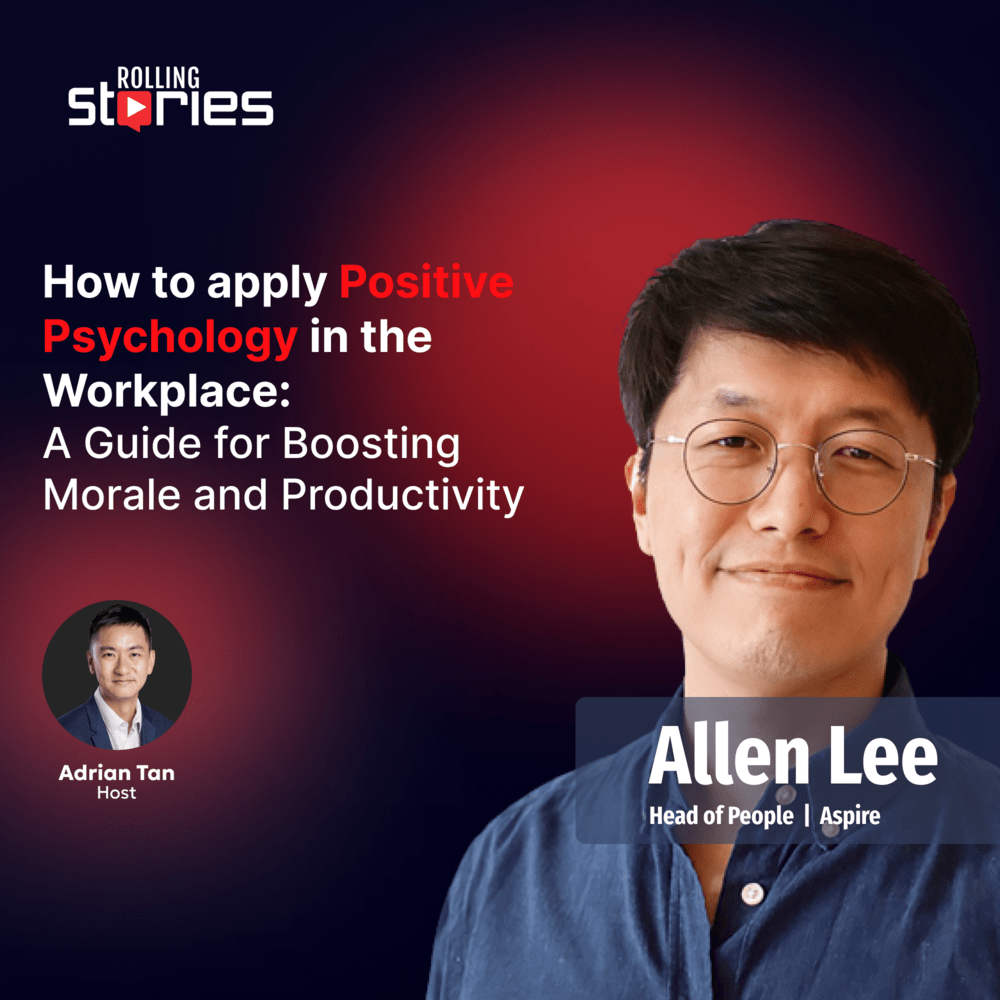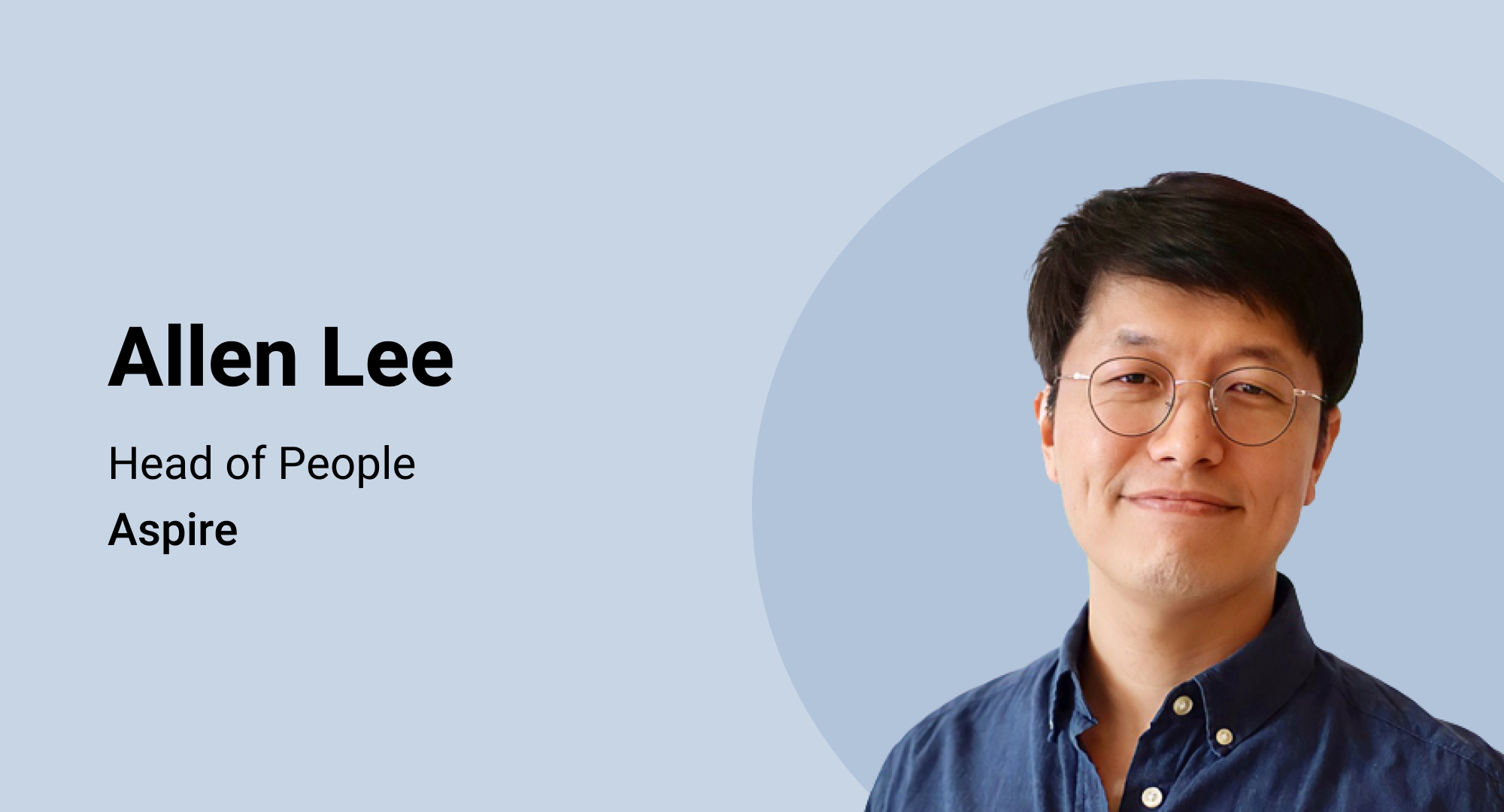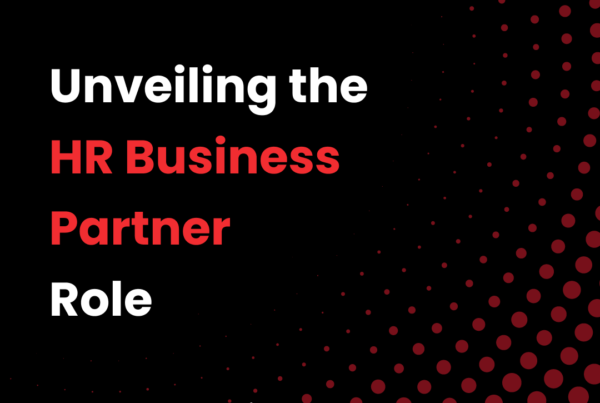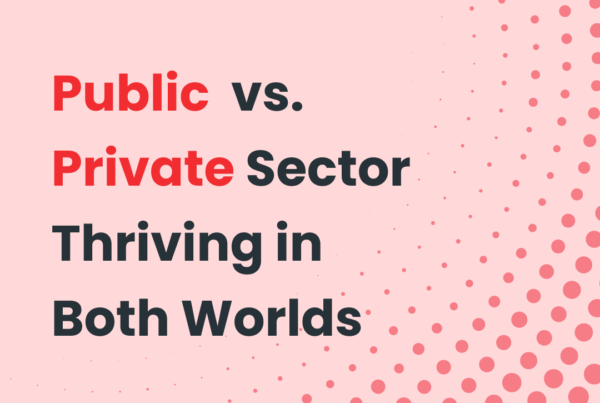
How to apply Positive Psychology in the Workplace : A Guide for Boosting Morale and Productivity
Sep 6 ,2023
Positive psychology isn’t just about feeling happy; it’s a philosophy that can transform how we approach work and enhance employee well-being. Discover how embracing positive psychology can create a more engaged and fulfilled workforce, leading to improved retention rates and overall success.
Host Adrian Tan is joined by a special guest, Allen Lee , the Head of People at Aspire, a leading finance operating system in Southeast Asia. Together, they explore the fascinating world of positive psychology and its impact on the workplace.
Positive psychology has gained traction recently as organisations recognise the importance of employee well-being and its impact on productivity. Allen explains that positive psychology is a broad term that encompasses applying psychological principles to various areas of life, including the workplace. It focuses on individual strengths, personal growth, and finding meaning in one’s work. By embracing positive psychology, organisations can create a more engaged and fulfilled workforce, leading to better retention rates and overall success.
The journey of applying positive psychology in the workplace is relatively new but rapidly evolving. Traditionally, psychology was used to help individuals and organisations return to a normal state. However, positive psychology goes beyond that, aiming to help individuals and organisations thrive and reach their full potential. Allen emphasises that positive psychology is not a one-size-fits-all approach but a lens through which we can approach challenges and foster a positive work environment.
As an HR practitioner, applying positive psychology requires a shift in mindset and a deep understanding of what motivates employees. Allen highlights three critical drivers of meaning in the workplace: competence, relatedness, and autonomy. By recognising and addressing these drivers, HR leaders can create a culture that promotes employee engagement and fulfilment. However, Allen acknowledges that applying positive psychology can be challenging, especially when leaders have different beliefs or approaches to motivation. It requires open-mindedness and a willingness to embrace new perspectives.
To illustrate the practical application of positive psychology, Allen shares an example of using employee surveys. While many companies conduct surveys, the key lies in how the data is used and how challenges are addressed. Using a positive psychology framework, HR leaders can dive deep into survey results and identify areas for improvement. This approach allows organisations to tackle issues at their core and create a more positive and engaging work environment.
Technology plays a crucial role in facilitating the application of positive psychology in the workplace. Allen mentions the use of HR software that enables instant recognition and appreciation. By leveraging technology, organisations can create a culture of recognition and enhance employee motivation. However, Allen cautions that while technology can be a powerful tool, it should not replace the human element. It is essential to balance automation and maintain meaningful connections with employees.
The COVID-19 pandemic has brought about significant changes in the workplace, with remote work becoming the new norm. Allen highlights the impact of the pandemic on the drivers of meaning in the workplace. While relatedness may have suffered due to the lack of in-person connections, autonomy has increased as employees gained more control over their work environment. This unintended pandemic emphasises autonomy’s importance in fostering employee engagement and meaning. As organisations navigate the post-pandemic world, maintaining and increasing independence will be crucial for employee well-being and productivity.
Looking ahead, the future of positive psychology in the workplace is promising but uncertain. The rapid advancement of technology, including AI, poses opportunities and challenges. While AI can enhance productivity and reduce mundane tasks, it may also raise concerns about job security and the human element in the workplace. Allen suggests that organisations embrace technology while remaining agile and adaptable to future changes. The key lies in finding the right balance between technology and human connection.
Conclusion
Positive psychology offers a fresh perspective on approaching work and employee well-being. Organisations can create a positive work environment that enhances productivity and employee satisfaction by focusing on individual strengths, fostering a sense of meaning, and embracing technology. While challenges may arise, the potential benefits of positive psychology in the workplace are undeniable. As HR practitioners, it is essential to explore and apply the principles of positive psychology to unlock the full potential of our workforce.
The journey of positive psychology in the workplace has just begun, and the future holds exciting possibilities. By adopting a positive psychology lens, organisations can create a workplace where employees thrive, find meaning in their work, and contribute to the company’s overall success. As we navigate the ever-changing landscape of work, let us embrace the power of positive psychology and unlock the potential of our workforce.
Recent Podcast
About Rolling Arrays
Rolling Arrays has been driving SAP SuccessFactors-led HR Transformation since 2009. The company specialises in SF consulting, implementation, and support and also builds applications to enhance the utility of the SuccessFactors platform. It is committed to designing systems that help its customers to attract, develop and retain talented individuals. In 2021, Rolling Arrays was recognized as one of the top 75 fastest-growing companies in Singapore by The Straits Times & Statista.





